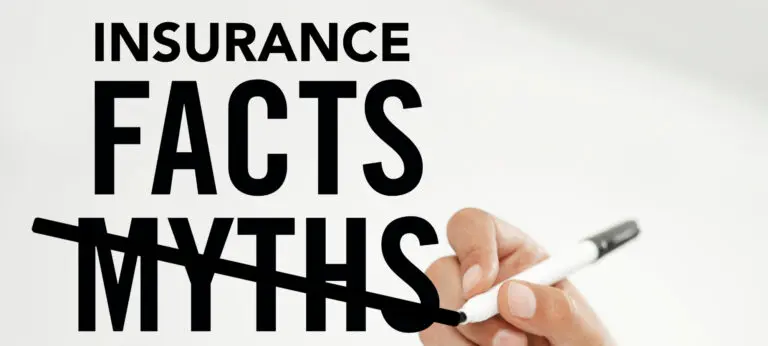In the world of insurance, myths and misconceptions abound, often leading individuals to make decisions based on misinformation. It’s crucial to separate fact from fiction when it comes to insurance, as making ill-informed choices can have profound implications on one’s financial security and peace of mind. In this comprehensive guide, we aim to debunk common insurance myths, shedding light on the truth behind these misconceptions. Let’s dive in and unravel the truth about insurance.
Myth #1: “I’m Young and Healthy, I Don’t Need Insurance”
The reality is that unexpected accidents and illnesses can strike anyone at any time, regardless of age or health status. Insurance serves as a safety net, providing financial protection against unforeseen events. By obtaining insurance coverage early on, individuals can secure lower premiums and better coverage. Additionally, certain types of insurance, such as life insurance, can offer valuable benefits and financial security for the future.
Myth #2: “Insurance Companies Always Deny Claims”
While it’s true that insurance companies carefully assess claims to prevent fraud, the notion of wholesale claim denials is exaggerated. In reality, legitimate claims that align with the policy terms and conditions are typically honored. To ensure a smoother claims process, individuals should thoroughly understand their policy coverage and maintain accurate documentation in support of their claims.
Myth #3: “I Can Rely Solely on Employer-Provided Insurance”
Relying solely on employer-provided insurance can be risky, as coverage may not be comprehensive or portable. Additionally, changes in employment status can lead to a loss of insurance benefits. It’s advisable to supplement employer-provided insurance with individual policies to ensure continuous coverage, tailored to specific needs.
Myth #4: “I Don’t Need Life Insurance if I’m Single and Childless”
While life insurance is often associated with providing for dependents, it also serves other purposes. For instance, life insurance can cover final expenses, outstanding debts, or serve as a charitable gift. Furthermore, obtaining life insurance at a younger age can lock in lower premiums, granting long-term financial security.
Myth #5: “I Already Have Health Insurance, I Don’t Need Disability Insurance”
Health insurance primarily covers medical expenses, but it does not replace lost income in the event of a disability. Disability insurance is designed to provide income protection if one is unable to work due to an injury or illness. It’s a crucial component of a comprehensive insurance portfolio, offering financial stability during challenging times.
Myth #6: “I Can Save Money by Underinsuring My Property”
Underinsuring property as a cost-saving measure can be a costly mistake in the long run. In the event of damage or loss, inadequate coverage may result in significant out-of-pocket expenses. It’s important to accurately assess the value of property and obtain adequate insurance coverage to safeguard against potential financial strains.
Myth #7: “Only High-Net-Worth Individuals Need Umbrella Insurance”
Umbrella insurance provides additional liability coverage beyond the limits of standard policies, offering protection against unforeseen legal and financial challenges. Contrary to popular belief, umbrella insurance is not exclusively for high-net-worth individuals. It is a valuable asset for anyone seeking to fortify their financial security and protect their assets from potential lawsuits.
Dispelling these insurance myths is essential for making informed and responsible decisions about insurance coverage. By understanding the realities of insurance and seeking tailored policies to meet individual needs, individuals can proactively safeguard their financial well-being. Remember, the right insurance coverage can offer peace of mind and financial security in the face of life’s uncertainties.






